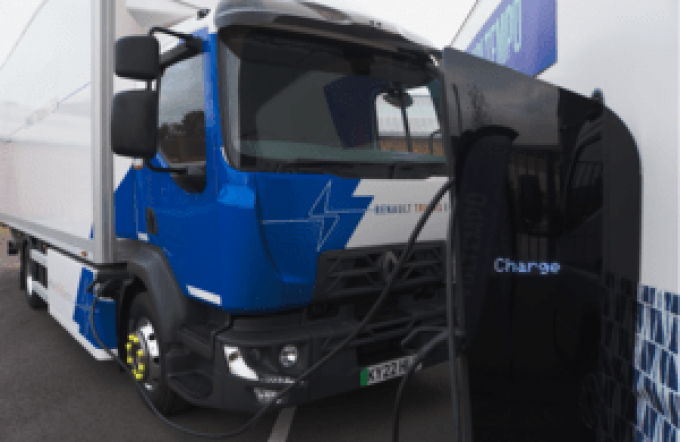UK stowaway rule risks collapsing haulage sector
Stakeholders are calling on the government to change migration rules that have caused a “significant” rise in ...

Freight vehicle manufacturers developing zero-emission technology face struggles in supply chains themselves heavily reliant on fast-changing vehicle technology.
Ironic – given that the UK government has just announced a huge investment package for the electric truck sector.
Following the collapse of both battery manufacturer Proterra and electric truck manufacturer Volta, questions have been raised about how new players in this emerging industry can survive.
Christopher de Saxe, head of sustainability at digital freight provider Zeus Labs, which focuses cutting emissions for shippers, told The Loadstar: “It’s saddening to learn of Volta’s downfall and the associated job losses.”
“This is the nature of new entrants in a market which is in the process of undergoing a system-wide change. There will always be some winners and, unfortunately, some losers.”
Mr de Saxe explained: “This does not, however, cast doubt on the overall decarbonisation outlook for trucking. Traditional truck OEMs are already offering electric commercial vehicle solutions…and they will benefit from more established and robust supply chains.
“Ironically, these supply chains are themselves heavily reliant on the rapidly changing freight vehicle technology that the likes of Volta, Scania and Volvo are delivering.”
He said these supply chain challenges would impact the market for “both new and traditional players alike”, and added: “The bankruptcy of Proterra played an important role in Volta’s unravelling, and this brings into question the knock-on effect to others in the market.”
He explained: “However, as Proterra was not a supplier to the major players in the commercial vehicle market, such as Northvolt for Scania or Samsung SDI to Volvo/Renault, this is unlikely to affect the electric truck market as a whole.”
Mr de Saxe said that, although electric vehicles were the “de facto net zero solution for trucking in the medium- to long-term”, Zeus had seen a “huge uptake in demand” for other decarbonisation solutions, and he cited biofuels such as HVO (hydrotreated vegetable oil) and biogas.
He said that, despite potential supply chain issues, “we expect the decarbonisation effort to continue at pace and we look forward to… a broad range of low-carbon freight solutions”.
The UK government yesterday anounced a £200m investment ($240m), in partnership with Innovate UK, to support a trial of up to 370 zero emission HGVs and around 57 refuelling and electric-charging sites.
Indro Mukerjee, CEO of Innovate UK, said the funding “will develop world-leading battery and hydrogen trucks”.
Decarbonisation minister Jesse Norman said: “The UK is at the forefront of the global transition to net zero and today marks another important milestone to decarbonise freight, one of the economy’s most vital industries… as we work closely with the sector to create new jobs, grow the economy and reach net zero by 2050.”
Roads minister Richard Holden added: “Freight and logistics are the beating heart of our economy and it is only right that we celebrate the sector so that it gets the recognition and support it deserves. From boosting zero emission tech across freight to attracting the future generation of talent to the industry… we are working hard to drive innovation.”
Comment on this article